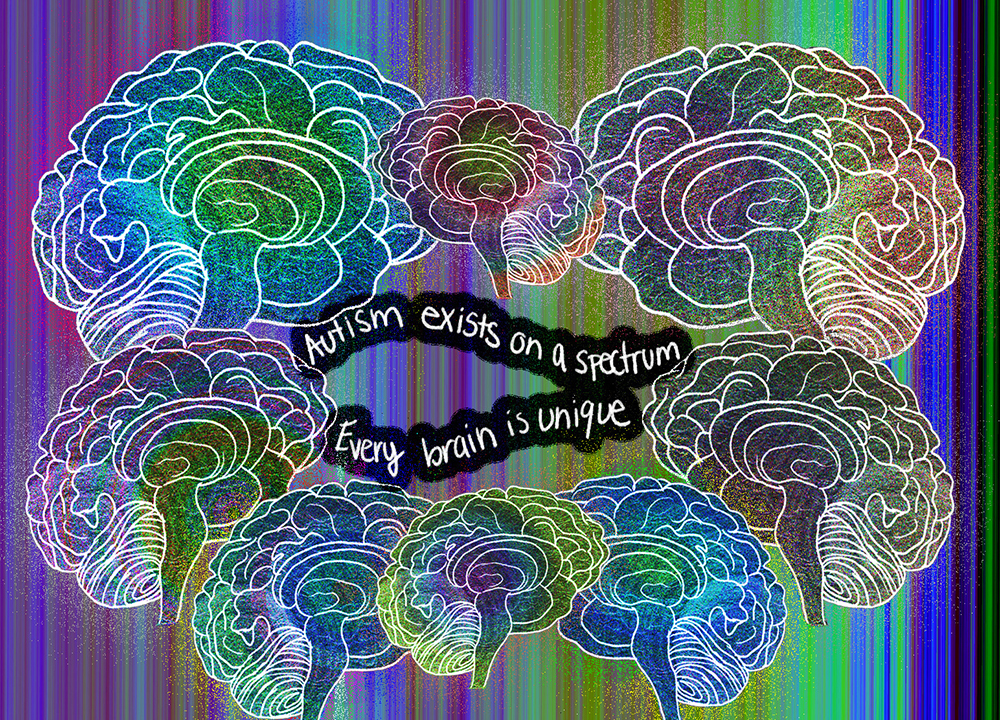Is autism genetic?
Submitted by
LizaGrade level
11Answered by
Natasha Burrell and Mel MooreWhat is autism?
Autism Spectrum Disorder (ASD) is a condition that impacts how people communicate, move their bodies, and interact with the world around them. The causes of autism have been debated for years… is it passed down in your family, or is it caused by something in the environment?
What causes autism?

Based on the research we have, experts believe that autism is most likely related to a person’s genes. So far, scientists have found that many people with autism share certain small differences in a number of their genes. These small effects work together… hundreds or thousands of these genetic differences will add up and affect how likely someone is to have autism. Joshua Anbar, a professor at Arizona State University’s College of Health Solutions, explained that “there isn't a single gene that causes autism.” There is a small chance that environmental factors play some role, and scientists are still exploring this.
Do vaccines cause autism?
You may have heard concerns that vaccines like the MMR vaccine can cause autism in children. Those concerns mainly trace back to the 1990s, when a study claimed to show a link between the two. But that study had major flaws, and its author lost his medical license. Since then, dozens of other studies have demonstrated there is no link between vaccines and autism. Although sometimes it's diagnosed later, autism is present from birth, which means a vaccine given after birth couldn't cause autism. Learn more about this vaccine health myth at the Doing Well newsletter.
Autism is a spectrum

Autism exists on a spectrum, which means that it can look differently for different people. Neurodivergence—which describes people with mental differences such as Autism Spectrum Disorder (ASD) or Attention-deficit/hyperactivity disorder (ADHD), to name a few—is actually way more common than we think. This is important to understand, to help everyone accept and advocate for people with these differences.
If you or a loved one has been diagnosed with autism, Anbar suggests reaching out to local organizations for help. They can often help you find support, services, and more information. If you think you or a family member might have autism, it’s a good idea to reach out to a counselor with expertise in autism or neurodivergence. A great place to start is the National Autism Association, or a group near you.
Additional images via Pixabay. Illustrations of the brain by Sara Montes Delgadillo.
Bibliographic details:
- Article: Is autism genetic?
- Author(s): Natasha Burrell, Mel Moore
- Publisher: Arizona State University School of Life Sciences Ask A Biologist
- Site name: ASU - Ask A Biologist
- Date published:
- Date accessed:
- Link: https://askabiologist.asu.edu/questions/autism-genetic
APA Style
Natasha Burrell, Mel Moore. (). Is autism genetic?. ASU - Ask A Biologist. Retrieved from https://askabiologist.asu.edu/questions/autism-genetic
Chicago Manual of Style
Natasha Burrell, Mel Moore. "Is autism genetic?". ASU - Ask A Biologist. . https://askabiologist.asu.edu/questions/autism-genetic
Natasha Burrell, Mel Moore. "Is autism genetic?". ASU - Ask A Biologist. . ASU - Ask A Biologist, Web. https://askabiologist.asu.edu/questions/autism-genetic
MLA 2017 Style

Autism exists on a spectrum. This means that people’s experiences with the condition and the symptoms they have vary widely.
Learn more about how brains function in our story A Nervous Journey.
Be Part of
Ask A Biologist
By volunteering, or simply sending us feedback on the site. Scientists, teachers, writers, illustrators, and translators are all important to the program. If you are interested in helping with the website we have a Volunteers page to get the process started.
